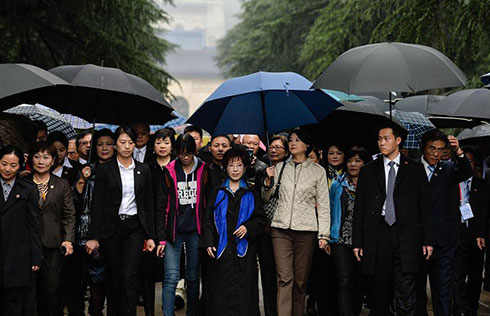China approves plan to establish four circuit courts
China's government group responsible for implementing reform has approved a plan to establish another four circuit courts aiming to share the burden of case hearings in the national top court and improve judicial efficiency.
The plan, approved on Tuesday at a meeting of the Leading Group for Overall Reform, led by President Xi Jinping, outlines plans to build up four new circuit courts respectively in Chongqing Municipality, Xi'an in Shaanxi province, Nanjing in Jiangsu province and Zhengzhou in Henan province.
The country has two circuit courts in Shenzhen, Guangdong province, and Shenyang, Liaoning province, which were set up at the end of 2014 and put into practice in early 2015.
The Supreme People's Court's circuit courts will provide the convenience of making lawsuits for residents, as well as to solve people's disputes and reduce the pressure of case hearings of the top court.
For example, the First Circuit Court in Shenzhen takes charge of hearing cases in Guangdong, Guangxi Zhuang autonomous region and Hainan province. It means litigants in the three regions will not go to the top court in Beijing to deal with related lawsuits, saving their time and travel costs.
The Second Circuit Court in Shenyang, is responsible for tackling disputes in Liaoning, Heilongjiang and Jilin provinces.
A group spokesperson said in the meeting that: "The new four circuit courts should go on playing the effective role in handling cases in the four regions, especially solving cross-regional administrative, civil and commercial disputes, in a move to improve judicial credibility and keep the justice."
In the past, some administrative cases, which are litigations between governmental departments and residents, were often disturbed by the administration's interference.
The circuit court can avoid such "governmental protection" or interference, ensuring verdicts fairer and made independently, according to the top court.
caoyin@chinadaily.com.cn



















